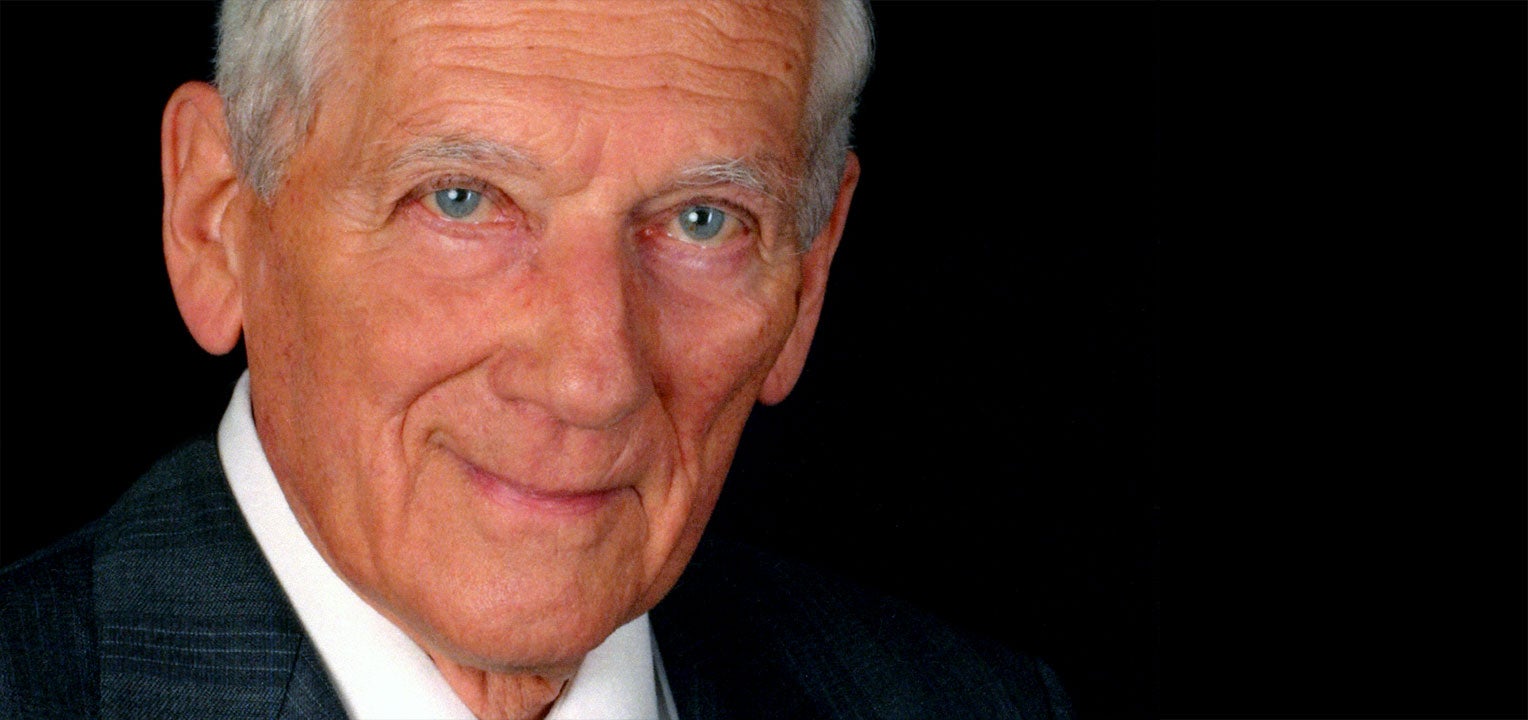“I am no killer. I am a human being.”
Heinz Drossel was a lieutenant in the German army during World War II who refused to join the Nazi Party and who protected Jews and helped them escape the Holocaust.
Drossel, the son of ardent anti-Nazis, completed his education in law just before the war but was barred from joining the legal profession because he refused to join the Nazi party or its affiliated organizations. Instead, he was drafted into the army. While remaining steadfast in his opposition to the Nazis, he took part in the invasion of France in 1940 and then was sent to the Eastern Front to fight against the Soviet Union. He was commissioned as an officer in 1942.
At great risk to his own life, Drossel acted on his convictions in the most extreme circumstances. In 1941, he released Russian prisoners to return to their own lines rather than execute them as he was directed. When his unit captured a Russian officer, Drossel quietly defied his commander’s order to take him back to headquarters where he knew the prisoner would be shot. Rather he turned the officer loose and directed him toward the Russian lines, telling him, “I am no killer. I am a human being.”
On leave in Berlin in 1942 while recovering from illness, Drossel came across a young woman who, seeing him approach in his uniform, seemed increasingly agitated as he neared and poised to leap from the railing of a bridge into the river below. He stopped her from jumping and, while trying to calm her fear, learned that she was Jewish and was terrified that she would be discovered and sent to a concentration camp. Drossel took Marianne Hirschfeld to his family’s apartment, which had been empty since they had left Berlin for the little town of Senzig in the nearby countryside to escape the danger of the night-time bombing raids by the Allies. Risking his own life, he kept her secret and gave her money so she could find a safe place to stay before he returned to his unit.
In 1945, while on leave to visit his parents at Senzig, a Nazi supporter in the community denounced friends who were Jewish and had been living quietly with forged identification papers. Jack and Lucie Hass, their daughter Margot, and her friend, Ernst Fontheim, faced imminent arrest and asked the Drossels for help. Heinz quickly took Jack Hass and Fontheim to the safety of the family apartment in Berlin, and found Margot and her mother shelter in another apartment. The Gestapo arrived in Senzig the next day to find no trace of them.
Back on the Eastern Front in the waning days of the war, Drossel told his unit to open fire on an SS unit that had ordered them to attack Russian positions. Drossel was arrested and awaiting execution when he was freed by the Russian advance. After several months, Drossel was released from a Russian prison camp and went home. In the streets of a ruined Berlin he encountered Marianne Hirschfeld, who he had saved three years earlier. They were married in 1946. Heinz Drossel was able to take up his legal career. He became a judge, retiring in 1981.
Ernst Fontheim moved to Ann Arbor with his wife Margot where he became a senior research scientist in the department of Atmospheric, Oceanic and Space Sciences at the University of Michigan.
In 2001 the German government awarded Heinz Drossel its highest civilian medal and he was honored as one of the Righteous Among Nations by Yad Vashemwas honored as one of the “Righteous Among the Nations” by Yad Vashem, Israel’s memorial to Jewish victims of the Holocaust. He said, “After I got the honor of Yad Vashem, I have spoken before more than 5,000 German young people in schools and high schools. It’s necessary to give young people the courage to be human.” In 2013, Katarina Stegelmann published a biography of Heinz Drossel, Bleib immer ein Mensch: Heinz Drossel, ein stiller Held 1916-2006 (Berlin: Aufbau).
Heinz Drossel died in April, 2008 in Simonswald, Germany.

